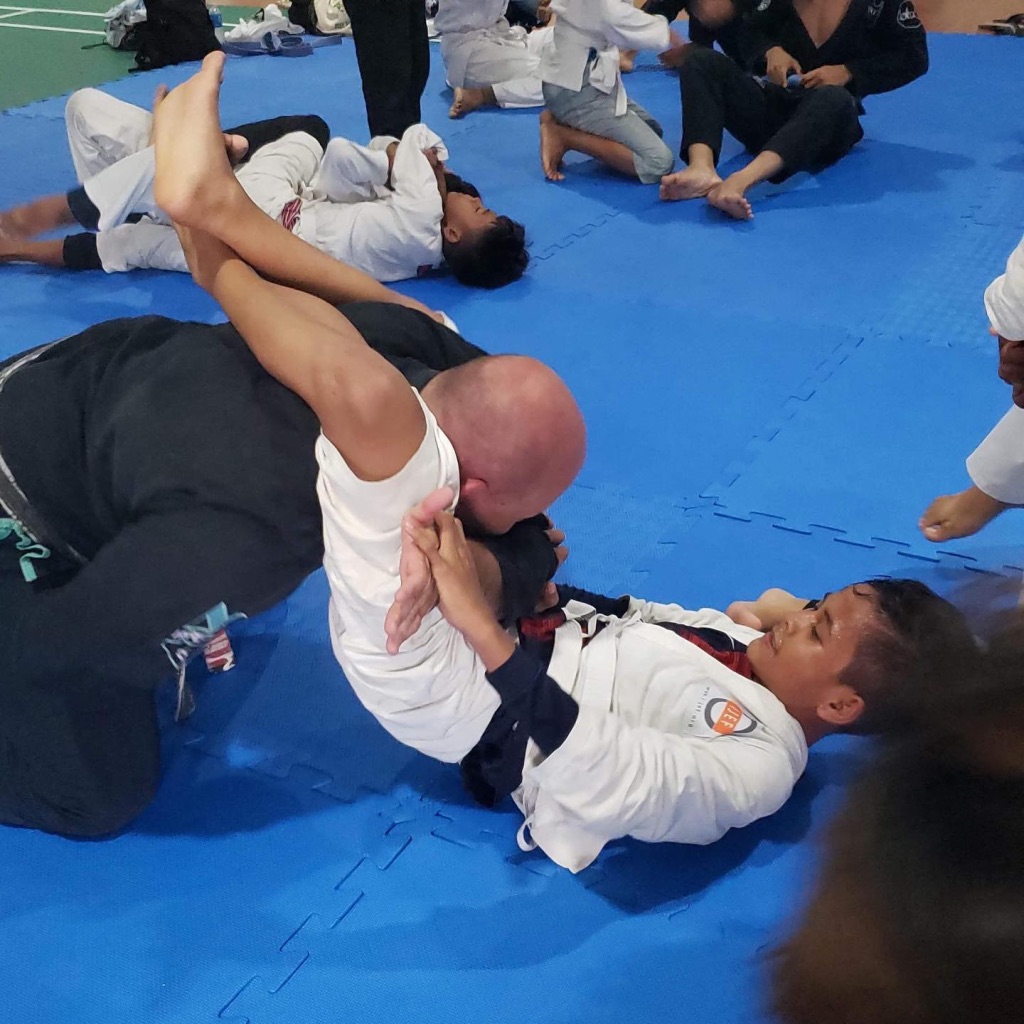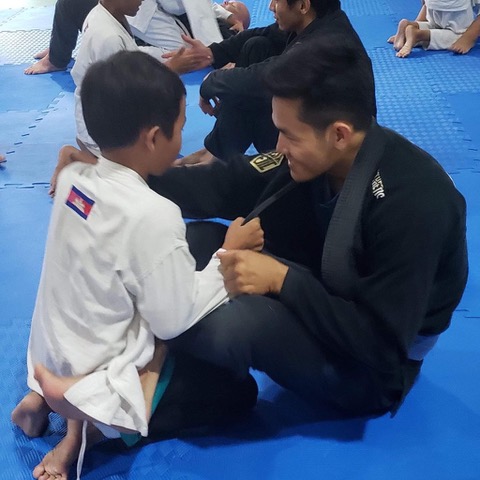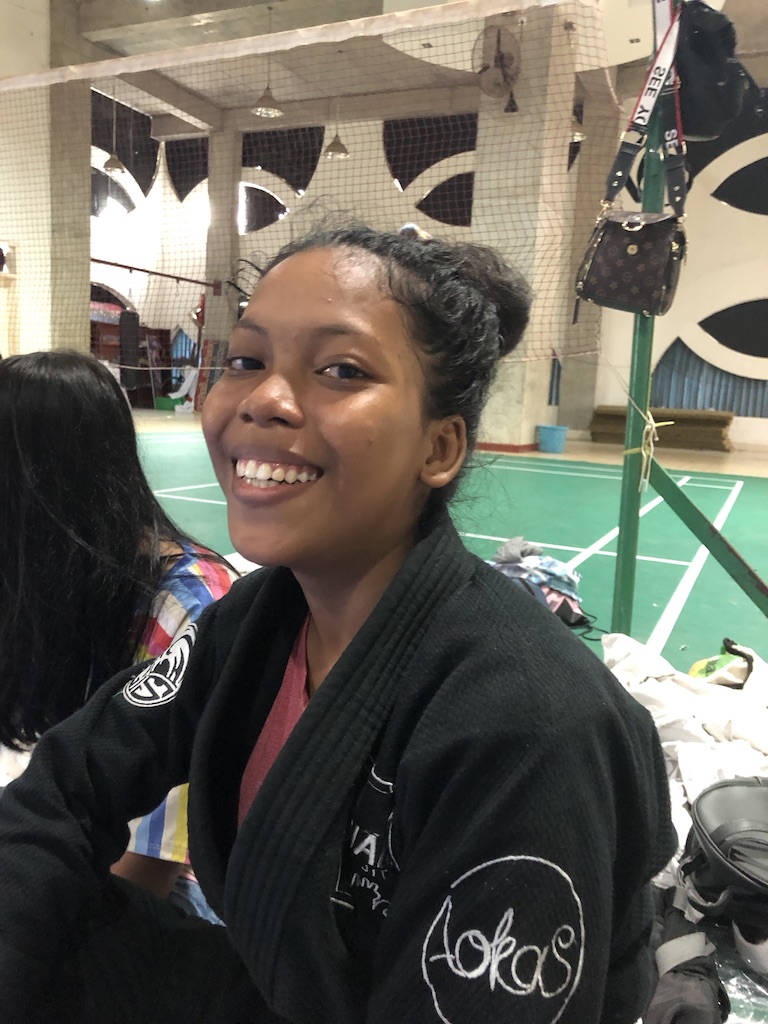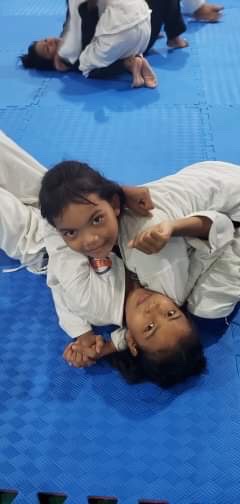As a PhD candidate in the Sociology department, I have spent several years studying post-genocide reconstruction. I am constantly working to better understand how countries with legacies of large-scale political violence reconcile and rebuild. But when I am not in the library or my office grappling with these concepts, I am on the mats of Minnesota Top Team (MTT) grappling with my teammates. For the last two years, I have spent my free time learning the martial art of Brazilian Jiu-Jitsu (BJJ).
BJJ is widely considered the “gentle art.” It is a grappling-based martial art whose entire ethos is centered on using concepts such as leverage and timing to submit stronger and more aggressive opponents. As a woman, BJJ is not only a competitive sport, but it is also teaching me proper self-defense techniques that can be carried out in a way that avoids physical harm. As a new member of the BJJ community, I have been impressed by the diversity of its members: from gender to ethnicity to profession, but despite a multitude of differences, I have been surprised by how welcoming and tight-knit this community of individuals is.
During my time at MTT, I have had the privilege to train with many black belts, including 3rd degree Black Belt and owner of M-Theory Martial Arts, Ishmael Bentley. Both Ishmael and his wife, Sue Bentley, are active board members of the International Jiu-Jitsu Education Foundation (IJEF). IJEF is a non-profit that started in Brazil with the intention of providing children in impoverished communities with a BJJ education. The program provides stipends for instructors, mats, and gis (the traditional uniform). It promotes not only the new knowledge of the sport but it supports community-driven change as well.

As Vice President and the Executive Director of IJEF, Ishmael and Sue respectively, have helped bring IJEF’s mission to six additional countries. The first country they were directly involved with was Cambodia. Sue, a native and survivor of the Cambodian genocide, remarked how IJEF’s presence in Cambodia is particularly special. In fact, IJEF’s presence in Cambodia has helped facilitate a government-sponsored initiative, recognizing BJJ as a national sport for the country. As a result, Cambodia recently competed at the Southeast Asia Games with Singapore, which has elevated the sport’s legitimacy in Cambodia.

What’s the connection between BJJ and genocide studies? As a budding sociologist who studies post-genocide reconstruction, I could not help but notice that each of the locations in which IJEF operates has a history of extreme political violence, if not genocide: Brazil, Cambodia, Ecuador, El Salvador, Guatemala, India, and the Philippines. Beyond the geographic locations of IJEF, the more I have trained BJJ, I have begun to consider the possible connections between post-conflict societies, violence, and the martial art.
It’s not just IJEF. With the help of the We Defy Foundation, American veterans have been introduced to the gentle art of BJJ, and as a result, there have been recent studies exploring the relationship between BJJ and PTSD and other trauma disorders. In fact, a recent study found that BJJ is good for veterans coping with trauma. And while these studies are in their infancy and psychological in nature, they suggest that BJJ helps with the mood regulation and decreased aggression.
As a testimony from We Defy states:
“There’s many challenges to overcome once you leave the theatre of combat. From our formative years in the Marine Corps, we are taught “violence of action”; Kill or be killed. In combat, this is a necessity. Here back home, it’s not applicable to most professions or lifestyles. Brazilian Jiu Jitsu is the perfect outlet for the displaced warrior. It teaches discipline, endurance, and humility….”
While IJEF doesn’t work specifically with survivors of genocide or other forms of violence, the Bentleys know that they are often working with the children of survivors. When asked why BJJ is important for children in these impoverished (and post-violent areas), the Bentleys mentioned several reasons: First, it gives children access to a growing and popular sport, which is a luxury in many of these countries. It also promotes character building (patience, humility, etc.), and in addition to character building, it also gives children who may be dealing with trauma an outlet and safe space. More broadly speaking, in Cambodia, there has been a recent women’s rights movement, and this has resulted in an acceptance of BJJ as a form of self-defense and empowerment for young girls and women alike. Lastly, and perhaps most poignant, BJJ creates a sense of community; it has the ability to break down barriers across all different types of people. Which I imagine in a post-conflict society has the ability to promote hope, resilience, and healing.
As one BJJ practitioner writes:
“ It teaches you to be humble and kind to other people and be more aware of how your actions are affecting someone else. It gets you to interact with way more groups of people that you’d otherwise see. It also helps you form deeper bonds with people than any other activity I’ve ever done.”
Reflecting on my own experiences with BJJ, my research on post-genocide reconstruction, and my interview with the Bentleys, I am struck by the possibility for potential areas of social science research:
- What is the impact of BJJ socially? Beyond the psychological studies exploring BJJ’s relationship with mental health, can BJJ create social change? Can it build a sense of community in countries with legacies of identity-based violence?
- Scholars have shown that war can be a force of rapid social change that has the ability to reconfigure gendered power relations in the wake of cultural, demographic, and economic shifts precipitated by mass atrocity (Berry 2018). And as the Bentleys mentioned, the women’s rights movement in Cambodia has allowed for a space in which women can participate in BJJ. Scholars have demonstrated that gender-based violence often increases after episodes of mass violence. Thus research that explores the relationship between gender and BJJ in post-violent societies could add to the existing literature on gendered power relations.
- When people discuss post-violent/post-conflict countries, this often creates a binary between violence and peace, creating an assumption that post-conflict societies are passive. How could scholars use BJJ to explore the complexities of the relationship between violence and peace?
- There appears to be an ongoing conversation about the value of BJJ, particularly in the wake of violence. To those unfamiliar to BJJ, this may seem counterproductive; but those who train BJJ, often argue it is not a violent practice. Rather, it is an activity that allows individuals to “perform violence” without an intent to harm in a safe and respectful environment. At a more empirical and tangible level, it may prove fruitful for researchers to explore whether sports like BJJ could be an integral part of national reconstruction efforts.
If you'd like to contribute to the efforts of IJEF, they are currently accepting donations. ** The views expressed in this blog post are my own and are not representative of CHGS, IJEF, M-Theory, or Minnesota Top Team**
Jillian LaBranche is a Ph.D. Candidate in Sociology and a Research Assistant at the Center for Holocaust and Genocide Studies at the University of Minnesota. Her research interests broadly include violence, knowledge, collective memory, and comparative methods. Her research seeks to understand how societies that recently experienced large-scale political violence teach about this violence to the next generation.



Comments 1
Exploring the Connections between Jiu Jitsu and Post-Genocide Reconstruction – Manila News — August 5, 2020
[…] Read More […]